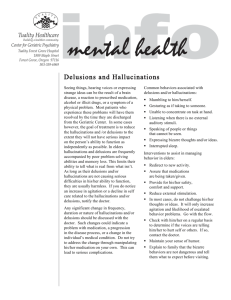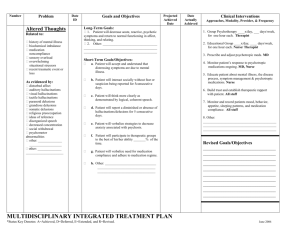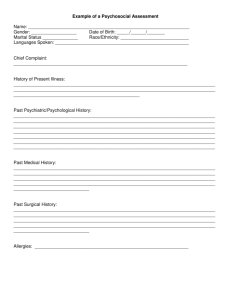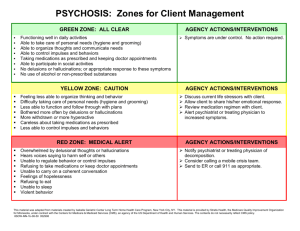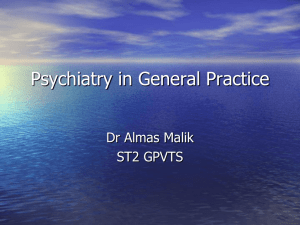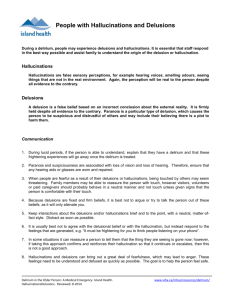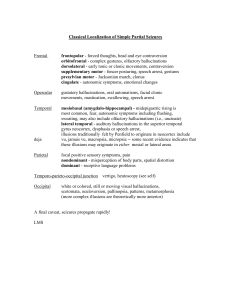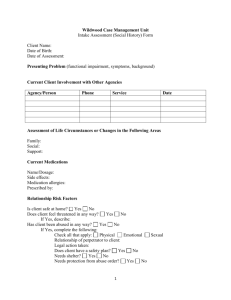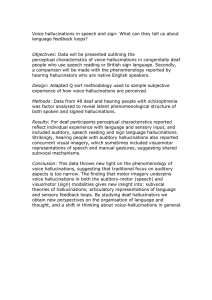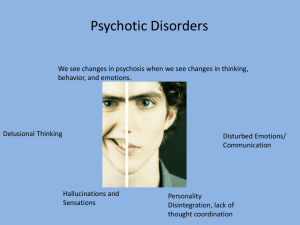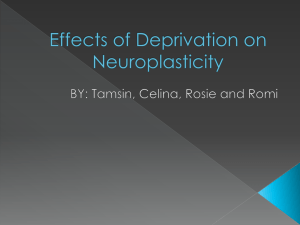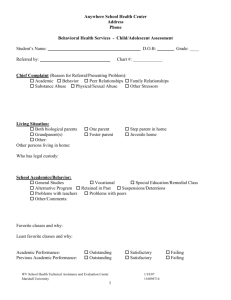Responding to Delusions and Hallucinations
advertisement
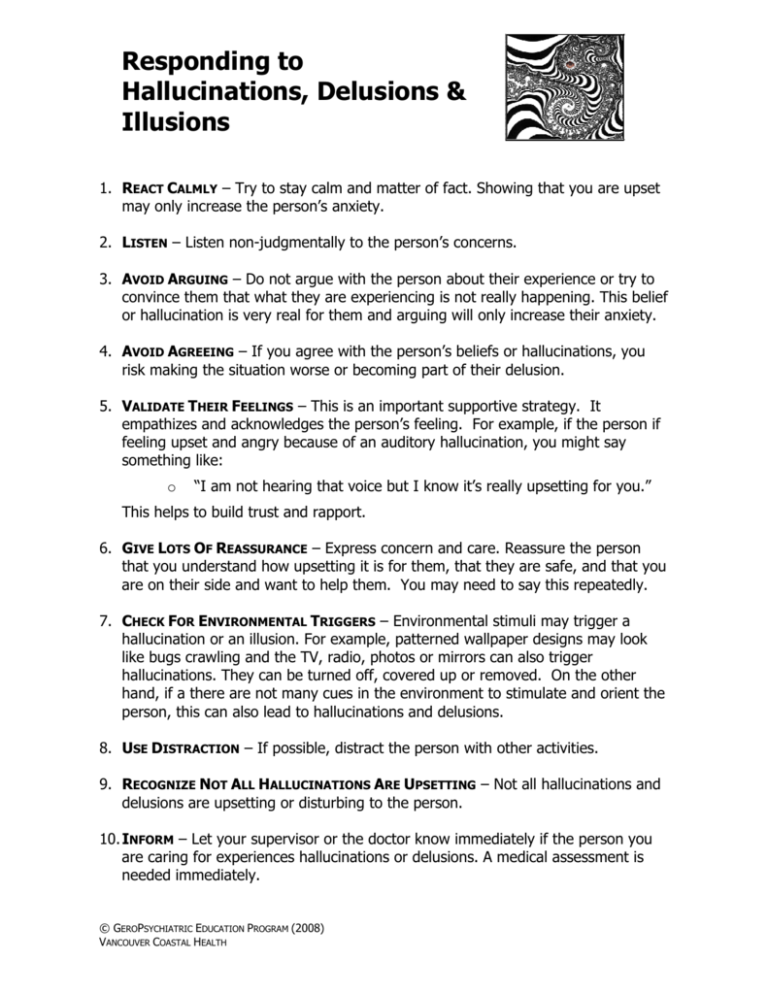
Responding to Hallucinations, Delusions & Illusions 1. REACT CALMLY – Try to stay calm and matter of fact. Showing that you are upset may only increase the person’s anxiety. 2. LISTEN – Listen non-judgmentally to the person’s concerns. 3. AVOID ARGUING – Do not argue with the person about their experience or try to convince them that what they are experiencing is not really happening. This belief or hallucination is very real for them and arguing will only increase their anxiety. 4. AVOID AGREEING – If you agree with the person’s beliefs or hallucinations, you risk making the situation worse or becoming part of their delusion. 5. VALIDATE THEIR FEELINGS – This is an important supportive strategy. It empathizes and acknowledges the person’s feeling. For example, if the person if feeling upset and angry because of an auditory hallucination, you might say something like: o “I am not hearing that voice but I know it’s really upsetting for you.” This helps to build trust and rapport. 6. GIVE LOTS OF REASSURANCE – Express concern and care. Reassure the person that you understand how upsetting it is for them, that they are safe, and that you are on their side and want to help them. You may need to say this repeatedly. 7. CHECK FOR ENVIRONMENTAL TRIGGERS – Environmental stimuli may trigger a hallucination or an illusion. For example, patterned wallpaper designs may look like bugs crawling and the TV, radio, photos or mirrors can also trigger hallucinations. They can be turned off, covered up or removed. On the other hand, if a there are not many cues in the environment to stimulate and orient the person, this can also lead to hallucinations and delusions. 8. USE DISTRACTION – If possible, distract the person with other activities. 9. RECOGNIZE NOT ALL HALLUCINATIONS ARE UPSETTING – Not all hallucinations and delusions are upsetting or disturbing to the person. 10. INFORM – Let your supervisor or the doctor know immediately if the person you are caring for experiences hallucinations or delusions. A medical assessment is needed immediately. © GEROPSYCHIATRIC EDUCATION PROGRAM (2008) VANCOUVER COASTAL HEALTH
